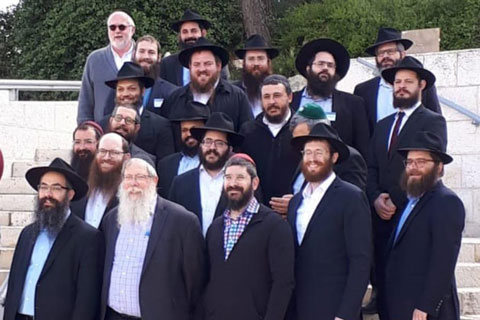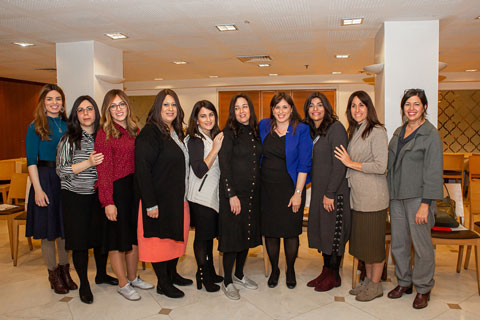Rabbi Menachem “Mendy” Fellig, who runs the Chabad Jewish Student Center at the University of Miami, is from a generation where he and his peers have at least one personal connection to a Holocaust survivor. He said that isn’t the case for many of the students he counsels today.
“Growing up, I remember sitting on the floor and asking my grandmother—who is a Holocaust survivor—questions about what it was like,” recalled Fellig, who has worked at the University for more than 18 years and represents Chabad as a member of the University’s Chaplains Association. “With many of the survivors getting older, there are less and less survivors able to share their stories.”

The certainty of this situation prompted an unprecedented move by Yad Vashem, Israel’s official memorial for the Holocaust, to host a weeklong seminar for Chabad rabbis and rebbetzins, the wife of rabbis, from colleges and universities around the globe to certify them as Holocaust educators. Fellig and his wife, Henchi, the campus ministry assistant, took the course in Jerusalem earlier this year.
“The further we get away from the actual people that experienced it, there is less and less sensitivity involved,” said Fellig. “And the less sensitivity you have, the less important it becomes. Everything is a ‘Holocaust’, and everybody’s in ‘the ghetto.’ All these words and phrases are being used, and it kind of downgrades what actually happened.”

His purpose for participating in the seminar was to properly gain information and research needed to reach students of all ages effectively. He described the program as being a “very robust” and “very intense” couple of days as they discussed heavy subject matter. This included a meeting with a French survivor who recounted their firsthand experience during the Holocaust.
“They shared with us tools and tips to handle situations and a lot of resources to create a plan of action for specific circumstances,” Fellig said. “The University of Miami is thankfully a very fair and balanced environment, but we still have our incidences.”
Traditionally, Chabad, an Orthodox Jewish Chasidic movement, has not focused its teachings on the Holocaust. But Fellig said recent times have prompted more conversations around what Holocaust studies mean and what lessons are necessary to pass down to younger generations.
“A lot of Jewish students, especially kids today, are reluctant to talk about topics that cause pain,” he said, “because people don’t want to look at themselves in a victim kind of mode. We want to see ourselves as strong and effective. So, especially for Jewish students at a very difficult time in history, there’s a dissonance of relating to the events.”
Fellig and his wife are hopeful that once the COVID-19 outbreak subsides and things return to normal on the Coral Gables campus, they will be able to implement more programming in addition to the yearly Holocaust Studies Summer Institute program.
“It was a great opportunity for my wife and I to become Holocaust certified educators,” Fellig said. “We hope to continue to build bridges to a wider University of Miami community and offer various resources from hosting discussions to just being there for students who need clarification. We want the UM community to know that we are here for them.”
